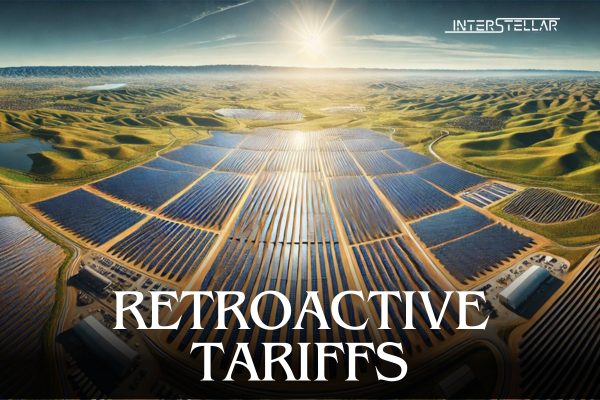U.S. Solar Panel Makers Urge Retroactive Duties on Vietnam and Thailand
A group of US solar panel makers has requested that the Commerce Department consider imposing retroactive duties on imports from Vietnam and Thailand. This comes in response to a significant increase in imports from these countries, which are currently under investigation for alleged unfair trade practices in the multi-billion-dollar solar panel industry.
Investigations into Unfair Trade Practices
In May, the Commerce Department launched investigations into silicon solar cells and panels manufactured in Vietnam, Thailand, Malaysia, and Cambodia. The investigation was initiated following allegations by US solar manufacturers that these products were being sold at unreasonably low prices in the US and were benefiting from Chinese subsidies. Many factories in these Southeast Asian countries are operated by Chinese manufacturers, which raises concerns about unfair competition.
According to US trade data reviewed by Reuters, the four Southeast Asian nations accounted for nearly 80% of the US solar panel imports last year, highlighting their significant presence in the market.
Impact on U.S. Manufacturing and Potential Tariffs
US President Joe Biden has committed to revitalising American manufacturing to support the fight against climate change. His administration has provided incentives for domestic production of goods, including solar panels and electric-vehicle batteries, which are predominantly produced in China. However, the small US solar manufacturing sector faces challenges in competing with the influx of low-priced imports.
As speculation about the ongoing trade investigations spread earlier this year, exports from Vietnam and Thailand surged. The American Alliance for Solar Manufacturing Trade Committee, which represents domestic producers such as Hanwha Qcells and First Solar, noted this increase in a complaint filed with the Commerce Department. This complaint followed their earlier petition in April that triggered the investigations.
The outcome of these investigations could lead to significant tariffs being imposed as early as July if preliminary findings in October confirm unfair trading practices. These tariffs could be applied retroactively for up to 90 days before the decision is made, adding further pressure on the countries involved.
Potential Consequences for Vietnam and Thailand
The trade ministries of Vietnam and Thailand have not responded to requests for comment. However, the implications of new tariffs could be severe, particularly for Vietnam. As the US considers Vietnam a non-market economy, it faces the risk of harsher penalties. This status often results in more severe sanctions due to unpredictable domestic pricing.
Experts estimate that the gap between Vietnam’s domestic and export prices, known as dumping margins, could be as high as 270%, using Indonesia as a benchmark. This is more than three times higher than the estimated margin for Thailand, potentially leading to higher tariffs for Vietnam if the allegations are upheld.
In their latest complaint, US manufacturers highlighted that the volume of solar imports from Vietnam and Thailand increased by 39% and 17%, respectively, in the second quarter of this year compared to the first quarter. The two countries allegedly increased shipments to the US in anticipation of potential duties, a move that could be viewed as “critical circumstances.” Both the Commerce Department and the International Trade Commission must determine whether such circumstances exist to impose retroactive duties.





